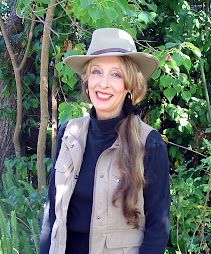Shakespeare wrote that “all the world’s a stage and all the men and women merely players” (Greenblatt, 1997). How we relate to the world around us shapes the daily drama of our lives. Are we mere puppets, dancing to someone else’s tune, second rate actors mouthing our lines—or jazz musicians, improvisational artists, actors who make the parts our own, creating a new reality in response to the world around us? Is our vision of reality static or dynamic?
 Stanford psychologist Carol Dweck has made a powerful discovery, recognizing the degree to which our sense of self, our abilities, our success in life depend upon our “mindset.” People with what she calls a “set mindset” are stuck in the status quo, believing that their intelligence cannot be changed, while those with a “growth mindset” believe that their intelligence increases as they embrace new challenges in their lives.
Stanford psychologist Carol Dweck has made a powerful discovery, recognizing the degree to which our sense of self, our abilities, our success in life depend upon our “mindset.” People with what she calls a “set mindset” are stuck in the status quo, believing that their intelligence cannot be changed, while those with a “growth mindset” believe that their intelligence increases as they embrace new challenges in their lives.
Neuroscience research has shown that our brains develop throughout our lives, growing new neural connections in response to stimulation. So if you cannot ride a bicycle, use a new computer program, play a musical instrument, or do any other new task, regular practice will stimulate your brain to develop new connections. After days, perhaps weeks of clumsy attempts and awkward efforts, suddenly one day it all comes together: suddenly you can do it. Stimulated by all that effort, new brain connections have formed.
On a cultural level, the two mindsets of growth or status quo reach back to the earliest Renaissance concepts of vocation. Both Martin Luther and John Calvin believed that we were blessed with unique gifts and called to use them to serve God and our neighbors. But Luther saw the world as set, with the social order created by God—so that if your father was a butcher, a baker, or a glove maker, you were destined to follow his trade. But Calvin looked at the social injustice around him and concluded that God had nothing to do it: the social order was constructed by men. He believed we were called to discover our talents and use them to create new possibilities. With such a growth mindset, one glove maker’s son, William Shakespeare, found his calling on the London stage, writing plays that have inspired the world for centuries.
One view of life was dynamic, the other static; one led to conformity, the other to creativity and social change. These two social mindsets appear on many levels. The 18th century gave rise to two views of patriotism: 1) obedience to the status quo or 2) ideals that led to a new form of government, moving from monarchy to democracy, government of the people and the rule of law.
The world around us continually affirms a growth mindset. Look around you at the flowers of spring as they blossom and raise their heads to the sky. We can also find growth and set mindsets in our daily lives. Recently, when I questioned a longstanding policy at work, some people said “but we’ve always done it that way.” Yet just because we’ve done something for years doesn’t make it right or rule out better alternatives. If our country had followed a set mindset, there would be no progress, no airplanes, electricity, phones, or computers; women couldn’t vote and there would still be slaves. Progress—in science, art, politics, and life—flows from a growth mindset.
Now it’s your turn:
- Do you believe your intelligence and abilities are static or dynamic?
- Do you have a set or a growth mindset?
Whatever you have believed about yourself in the past, you really can change your intelligence and ability with practice--brain research has shown this is true. And by embracing a growth mindset, you can create greater possibilities within and around you.
Take a moment now to breathe in—realize that you are a living, growing unique individual, able to make a dynamic difference in your world, right here, right now.
References
Dweck, Carol. S. (2006). Mindset. New York, NY: Ballentine Books. Watch a video of Professor Dweck explaining her mindset research at http://www.youtube.com/watch?v=XHW9l_sCEyU




